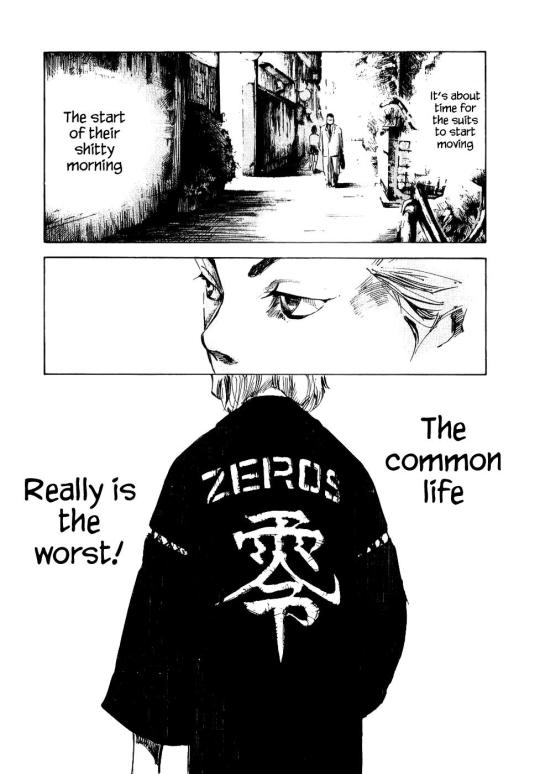#Day 105/366
Explore tagged Tumblr posts
Video

Sunday Morning Cyclist 105-366 2024 by Daniel Dewan Via Flickr: A woman rides her bicycle along Bank Street at Gladstone Avenue. Sunday April 14 2024.
#Centretown#portrait#bicycle#Canon RF 24-105mm f4 L IS USM#Bank Street#street#people#Canon#colour#Gladstone Avenue#Daniel Dewan#Ottawa#Sunday#Spring#female#2024#Ontario#Canada#glasses#Canon EOS R#366 project#April#366: The 2024 Edition#366:2024#Day 105/366#14-Apr-2024#flickr
0 notes
Text




366 Days of Killian Jones [105/366]
#season 6#S06E17#cinemapix#filmtvcentral#userdailyonce#userstorybrooke#ouatedit#hookedit#killianjonesedit#ouat#killian jones#366daysofKJ#my edits
193 notes
·
View notes
Text
Day 105:
My 365 Days of Music idea completely went to shit this year, LOL!
So, I'll make myself do a 366 Days of Music Playlist next year and actually commit to it!
47 notes
·
View notes
Text

one a day 366/105
"green" / Rekawinkel / Austria / ©Julia Lametta
#photography#forest#trees#green#series.one.a.day#julialametta#original photographers#photographers on tumblr#niederösterreich#lower austria#austria
144 notes
·
View notes
Text




105/366 days of joey potter 6x16- that was then
#joey potter#joeypotteredit#dawson's creek#dawsonscreekedit#teendramaedit#*#366*#by kate#season 6#the most gorgeous girl in the history of gorgeous girls
67 notes
·
View notes
Text


Cagliari - Duomo - XIII sec. e Pisa - Duomo - 1118
I possedimenti sardi della Repubblica marinara di Pisa spiegano le affinità fra le due cattedrali: allo stesso modo l’arte europea risente della radice latina della sua storia.
La storia della letteratura romana è costituita da due fili: la rivisitazione della cultura greca e la narrazione della storia della repubblica e dell’impero.
Di seguito le tappe più importanti:
a. C.
754 - 504 Re di Roma. Numa Pompilio fonda il Pontifex Maximus. Sotto il regno di Tullio Ostilio gli Orazi sconfiggono i Curiazi, campioni di Alba Longa. Anco Marzio estende il territorio e costruisce il Ponte Sublicio per unire gli insediamenti urbani con il Palatino. Tarquinio Prisco, primo re etrusco, ne introduce la cultura (anche i goliardici fescennini) e realizza la Cloaca Massima, Servio Tullio riorganizza l’esercito e la società in centurie determinate dalla ricchezza. Fine della monarchia con Tarquinio il Superbo cacciato anche grazie al coraggio di Muzio Scevola. Primi consoli Bruto e Collatino.
496 - Vittoria sui Latini e su Tarquinio il Superbo al Lago Regillo
494 - La plebe sull’Aventino. Discorso di Menenio Agrippa
493 - Foedus Cassianum con i Latini: coinvolgere le elitè dei popoli sconfitti è sempre stata la strategia romana.
477 - La gens Fabia sconfitta sul fiume Cremera dai Veienti
449 - XII Tabulae
445 - la Lex Canuleia consente il matrimonio fra patrizi e plebei
431 - Cincinnato dittatore sconfigge Volsci ed Equi
396 - Furio Camillo conquista Veio
390 - i Galli Senoni di Brenno (“Vae victis”) saccheggiano Roma, ma Furio Camillo li sconfigge.
366 - Leggi Liciniae - Sextiae: primo console plebeo. Per l’espansione della repubblica era necessario che Roma superasse l’impostazione di società fondata sulle gentes.
321 - i Romani sono sconfitti dai Sanniti e sottoposti alle Forche Caudine. I Romani introducono nel proprio armamento il giavellotto: ogni sconfitta li porta a migliorare la tattica militare che in questo caso si traduce nella vittoria sui Sanniti nel 290.
295 - i Romani sconfiggono Galli, Sanniti ed altre popolazioni dell’Italia centrale nella battaglia del Sentino.
272 - A Benevento i Romani sconfiggono Pirro e dominano la Magna Grecia benché la cultura greca, attraverso il Circolo scipionico, penetra a Roma nonostante l’avversione dei difensori del mos maiorum.
241 - Dopo la battaglia delle Egadi, alla fine della prima guerra punica, i Romani conquistano la Sicilia.
240 - Livio Andronico rappresenta il primo dramma in latino e traduce Iliade ed Odissea.
219 - 202 - Bellum Poenicum (Nevio)
219 - Annibale espugna Sagunto e provoca i Romani alla Seconda guerra punica.
216 - Annibale, varcate le Alpi, sconfigge i Romani a Canne, ma viene logorato da Quinto Fabio Massimo.
202 - Scipione l’Africano vince Annibale a Zama e pone termine alla seconda guerra punica.
III - II sec. - Aulularia, Miles Gloriosus ed altre opere tipiche della “commedia dell’arte” latina di Plauto che creano maschere, personaggi tipici come il servus currens.
II sec. - Annales (Ennio) dalle origini al 171 a. C.
197 - Filippo V di Macedonia viene sconfitto. La cultura greca entra a Roma.
163 - Il punitore di se stesso (Terenzio), improntato alla commedia ellenistica di Menandro
160 - De agri cultura (Catone)
146 - Scipione l’Emiliano distrugge Cartagine al termine della terza guerra punica
133 - Assassinio di Tiberio Gracco
121 - Morte di Tiberio Gracco. La proletarizzazione della plebe secoli è causata dall’incapacità di realizzare riforme agrarie efficaci e dalla conseguenza creazione di latifondi in mano a patrizi e cavalieri. Questo crea un esercito di professionisti costituti da masse di cittadini dipendenti dai donativi dei generali e crea quindi le basi per l’ascesa di figure come Mario, Pompeo ed Antonio (populares) in diretta concorrenza con la classe senatoria rappresentata da Silla, Cicerone, Bruto e Ottaviano (optimates).
105 - Mario sconfigge Giugurta
101 - Mario sconfigge i Cimbri ai Campi Raudii
86 - 79 Dopo la guerra civile fra gli Optimates di Silla e Pompeo e i Populares di Mario, dittatura di Silla
I sec.
De rerum natura (Lucrezio)
È dolce, mentre nel grande mare i venti sconvolgono le acque, guardare dalla terra la grande fatica di un altro; non perché il tormento di qualcuno sia un giocondo piacere, ma perché è dolce vedere da quali mali tu stesso sia immune. Dolce è anche contemplare grandi contese di guerra apprestate nei campi senza che tu partecipi al pericolo. Ma nulla è più piacevole che star saldo sulle serene regioni elevate, ben fortificate dalla dottrina dei sapienti, donde tu possa volgere lo sguardo laggiù, verso gli altri, e vederli errare qua e là e cercare, andando alla ventura, la via della vita, gareggiare d'ingegno, rivaleggiare di nobiltà, adoprarsi notte e giorno con soverchiante fatica per assurgere a somma ricchezza e impadronirsi del potere.
73 - Ribellione di Spartaco a Capua
70 - Verrine (Cicerone)
62 - Pro Archia (Cicerone)
Haec studia adulescentiam agunt, senectutem oblectant, secundas res ornant, adversis rebus perfugium ac solacium praebent
60 - Primo triumvirato. Catilinarie (Cicerone)
Quousque tandem, Catilina, abutere patientia nostra?
Carmi (Catullo). Catullo è un esponente dei poeti neoterici, avversi all'epica e attenti ai brevi componimenti ellenistici che si concentrano sui dettagli (es. il passero di Lesbia).
Sulla tomba del fratello
Di gente in gente, di mare in mare ho viaggiato, / o fratello, e giungo a questa cerimonia funeraria / per consegnarti il dono supremo di morte / e per parlare invano con le tue ceneri mute, / poiché la sorte mi ha rapito te, proprio te, / o infelice fratello precocemente strappato al mio affetto. / E ora queste offerte, che io porgo, come comanda l’antico / rito degli avi, dono dolente per la cerimonia, gradisci; sono madide di molto pianto fraterno; / e ti saluto per sempre, o fratello, addio.
Multas per gentes et multa per aequora vectus, / advenio has miseras, frater, ad inferias, / ut te postremo donarem munere mortis et mutam nequiquam adloquęrer cinęrem.
“Non ho per niente voglia di piacerti, o Cesare, né m'importa di saperti bianco o nero”
"Odi et amo. Quare id faciam, fortasse requiris? Nescio, sed fieri sentio et excrucior"
52 - Pro Milone (Cicerone)
51 - De re publica (Cicerone) che include il Somnium Scipionis
50 - De bello gallico (Cesare)
48 - Battaglia di Farsalo. De bello civili (Cesare)
44 - Idi di marzo
[Secondo la pronuncia del latino restitutuum, “Ave Caesar” era “Aue Kàesar”]
43 - Secondo triumvirato. La congiura di Catilina (Sallustio). Filippiche di Cicerone contro Antonio i cui sicari, proprio quell’anno, lo assassinano.
42 - Bucoliche (Virgilio), raccolta di canti di tipo ellenistico (Callimaco, Teocrito), improntati allo spirito agreste dell'ideologia augustea, ma anche attenti a raccontare il dolore delle espropriazioni successive alle guerre civili.
Titiro, tu che riposi sotto l’ombra di un alto faggio, intoni sull'esile flauto una melodia silvestre: noi lasciamo i territori della patria e i dolci campi, noi abbandoniamo la patria; tu o Titiro, rilassato all’ombra insegni alle selve a risuonare il nome della bella Amarillide.
Tityre, tu patulae recubans sub tegmine fagi silvestrem tenui musam meditaris avena; nos patriae finis et dulcia linquimus arva; nos patriam fugimus; tu, Tityre, lentus in umbra, formosam resonare doces Amaryllida silvas.
Oh Muse sicule, alziamo un poco il tono del canto: non a tutti piacciono gli arbusti e le umili tamerici; se cantiamo le selve, le selve siano degne di un console.
Sicelides Musae, paulo maiora canamus; non omnis arbusta iuvant humilesque myricae: si canimus silvas, silve sint consule dignae.
Omnia vincit Amor: et nos cedamus Amori
40 - La guerra di Giugurta (Sallustio)
31 - Ottaviano e Agrippa sconfiggono Antonio e Cleopatra ad Azio
27 - a. C. - 68 d. C. Dinastia Giulio - Claudia (Augusto, Tiberio, Claudio, Nerone)
Eneide (Virgilio), unione fra la componente iliadica ("arma") e quella odisseica ("la pietas di Enea"), poema lasciato incompiuto da Virgilio, ma pubblicato per volere di Augusto. Crea un legame fra la storia di Troia, la maledizione della cartaginese Didone, l'approdo sulle coste italiche.
Narro delle imprese di guerra, del primo troiano che arrivò in Italia sulle coste di Lavinio per volontà del destino. Sballottato per molto tempo sia per mare sia sulla terraferma per voler degli dei; per colpa di Giunone soffrì tanto anche durante le battaglie. Finché fondò una città che diede casa ai Penati origini dei troiani e dei romani.
Arma virumque cano, Troiae qui primus ab oris Italiam fato profugus Laviniaque venit litora, multum ille et terris iactatus et alto vi superum, saevae memorem Iunonis ob iram, multa quoque et bello passus, dum conderet urbem inferretque deos Latio; genus unde Latinum Albanique patres atque altae moenia Romae.
Rari nantes in gurgitte vasto
Timeo Danaos et dona ferentes
Agnosco veteris vestigia flammae
Auri sacra fames
Una salus victis, nullam sperare salutem
Tu regere imperio populos, Romane, memento (hae tibi erunt artes), pacique imponere morem, parcere subiectis et debellare superbos
[Mantua me genuit, Calabri rapuere, tenet nunc Parthenope: cecini pascua, rura, duces]
27 - 14 d. C. Ad urbe condita (Livio)
23 - 13 - Odi (Orazio)
Vedi come si innalza bianco di neve il Soratte, e gli alberi sofferenti non reggono più il peso e si rapprendono i fiumi per il gelo acuto. Dissolvi il freddo, mettendo legna sul fuoco con larghezza, e versa generosamente vino di quattro anni dall’anfora sabina, Taliarco. Il resto lascialo agli dei che, appena placano i venti in lotta sul mare in burrasca, ecco che non si muovono più i cipressi e i vecchi ontani. Non chiederti cosa sarà domani, e tutti i giorni che la sorte ti darà segnali tra gli utili, e non disprezzare, ragazzo, i dolci amori e le danze, finché ti è ancora lontana la vecchiaia fastidiosa. Adesso frequenta il Campo Marzio, le piazze e i lievi sussurri la sera all’appuntamento, e il riso agognato della tua ragazza che viene dall’angolo più segreto a tradirla, e il pegno strappato al braccio e al dito che appena resiste.
Vides ut alta stet niue candidum Soracte nec iam sustineant onus silvae laborantes geluque flumina constiterint acuto?
Odi profanum vulgus, et arceo
Ho innalzato un monumento più duraturo del bronzo e più elevato della mole regale delle piramidi, che non la pioggia corrosiva, non l'Aquilone impetuoso potrebbe distruggere o l'innumerevole serie degli anni e la fuga dei tempi.
Non tutto morirò e molta parte di me eviterà Libitina: continuamente io crescerò mantenuto in vita dalla lode dei posteri, finché il Pontefice salirà il Campidoglio con la vergine silenziosa.
Exegi aere perennium
Non omnis moriar
Ut pictura poesis
[esistono poesie che come i quadri sono belle viste da lontano e altre da vicino]
Graecia capta ferum victorem cepit
Nunc est bibendum, nunc pede libero pulsanda tellus [in occasione della morte di Cleopatra]
Dulce et decorum est pro patria mori
Carpe diem, quam minimum credula postero
d. C.
I sec.
Favole (Fedro)
Epigrammi (Marziale)
8 - Metamorfosi (Ovidio)
9 - Publio Quintilio Varo sconfitto a Teutoburgo
60 - Satyricon (Petronio)
61 - 65 - Pharsalia (Lucano)
64 - Dialoghi (Seneca)
Ars longa, vita brevis
Non esiste vento favorevole per il marinaio che non sa dove andare
È l’animo che devi cambiare, non il cielo sotto cui vivi
68 - 96 Anno dei quattro imperatori. Dinastia Flavia
79 - Eruzione di Pompei
93 - Silvae (Stazio)
II sec. - Metamorfosi (Apuleio)
Satire (Giovenale)
96 - Nerva imperatore
97 - 110 Epistolario (Plinio il Giovane)
98 - Traiano imperatore
105 - Historiae (Tacito)
117 - 192 Dinastia Antonina (Adriano, Antonino Pio, Marco Aurelio, Lucio Vero, Commodo)
193 - Pertinace, poi Settimo Severo imperatore
119 - 122 Le vite dei Cesari (Svetonio)
212 - Geta, poi Caracalla imperatore. Caracalla concede la cittadinanza a tutto l’Impero.
270 - nella crisi del terzo secolo, si distinguono le vittorie militari di Aureliano che costruisce le mura omonime in città: il fatto che non ve ne fossero dà l’idea di un impero in declino.
293 - Diocleziano introduce la Tetrarchia
312 - Costantino sconfigge Massenzio al ponte Milvio
313 - Editto di Milano
378 - Valente sconfitto ad Adrianopoli dai Goti
387 - Exameron (Ambrogio)
380 - 392 - Storie (Ammiano Marcellino)
396 - Teodosio divide l’Impero
398 - Confessioni (Agostino)
Vulgata (Girolamo)
V sec. - De bello gothico (Claudiano)
476 - Deposizione di Romolo Augustolo da parte di Odoacre
5 notes
·
View notes
Text
Commons Vote
On: Budget Responsibility Bill: Committee: Amendment 9
Ayes: 109 (96.3% Con, 1.8% DUP, 0.9% Lab, 0.9% Ind) Noes: 366 (97.8% Lab, 1.9% Ind, 0.3% SDLP) Absent: ~175
Day's business papers: 2024-9-4
Likely Referenced Bill: Budget Responsibility Bill
Description: A Bill to impose duties on the Treasury and the Office for Budget Responsibility in respect of the announcement of fiscally significant measures.
Originating house: Commons Current house: Commons Bill Stage: 3rd reading
Individual Votes:
Ayes
Conservative (105 votes)
Alan Mak Alberto Costa Alex Burghart Alicia Kearns Alison Griffiths Andrew Bowie Andrew Griffith Andrew Mitchell Andrew Murrison Andrew Rosindell Andrew Snowden Aphra Brandreth Ashley Fox Ben Obese-Jecty Ben Spencer Bernard Jenkin Blake Stephenson Bob Blackman Bradley Thomas Caroline Dinenage Caroline Johnson Charlie Dewhirst Chris Philp Claire Coutinho Damian Hinds Danny Kruger David Davis David Mundell David Reed David Simmonds Desmond Swayne Edward Argar Gagan Mohindra Gareth Bacon Gareth Davies Gavin Williamson Geoffrey Clifton-Brown Geoffrey Cox George Freeman Graham Stuart Greg Smith Gregory Stafford Harriet Cross Harriett Baldwin Helen Whately Iain Duncan Smith Jack Rankin James Cartlidge James Cleverly James Wild Jeremy Hunt Jeremy Wright Jerome Mayhew Joe Robertson John Cooper John Glen John Hayes John Lamont John Whittingdale Joy Morrissey Julia Lopez Karen Bradley Katie Lam Kemi Badenoch Kevin Hollinrake Kieran Mullan Kit Malthouse Lewis Cocking Lincoln Jopp Louie French Luke Evans Mark Francois Mark Garnier Mark Pritchard Martin Vickers Matt Vickers Mel Stride Mike Wood Mims Davies Neil Hudson Neil O'Brien Neil Shastri-Hurst Nick Timothy Nigel Huddleston Oliver Dowden Patrick Spencer Peter Bedford Peter Fortune Rebecca Harris Rebecca Paul Rebecca Smith Richard Fuller Richard Holden Robbie Moore Robert Jenrick Saqib Bhatti Sarah Bool Shivani Raja Simon Hoare Steve Barclay Stuart Andrew Suella Braverman Tom Tugendhat Victoria Atkins Wendy Morton
Democratic Unionist Party (2 votes)
Gavin Robinson Jim Shannon
Labour (1 vote)
Julia Buckley
Independent (1 vote)
Iqbal Mohamed
Noes
Labour (358 votes)
Abena Oppong-Asare Abtisam Mohamed Adam Jogee Adam Thompson Afzal Khan Al Carns Alan Campbell Alan Gemmell Alan Strickland Alex Baker Alex Ballinger Alex Barros-Curtis Alex Davies-Jones Alex Mayer Alex McIntyre Alex Norris Alice Macdonald Alison Hume Alison McGovern Alison Taylor Alistair Strathern Allison Gardner Amanda Hack Amanda Martin Andrew Cooper Andrew Gwynne Andrew Lewin Andrew Pakes Andrew Ranger Andrew Western Andy MacNae Andy McDonald Andy Slaughter Angela Eagle Anna Dixon Anna Gelderd Anna McMorrin Anna Turley Anneliese Dodds Anneliese Midgley Antonia Bance Ashley Dalton Baggy Shanker Bambos Charalambous Barry Gardiner Bayo Alaba Beccy Cooper Becky Gittins Ben Coleman Ben Goldsborough Bill Esterson Blair McDougall Brian Leishman Callum Anderson Calvin Bailey Cat Smith Catherine Atkinson Catherine Fookes Catherine McKinnell Catherine West Charlotte Nichols Chi Onwurah Chris Curtis Chris Elmore Chris Hinchliff Chris Kane Chris McDonald Chris Murray Chris Vince Chris Ward Chris Webb Christian Wakeford Claire Hazelgrove Claire Hughes Clive Betts Clive Efford Clive Lewis Connor Naismith Connor Rand Damien Egan Dan Aldridge Dan Carden Dan Tomlinson Daniel Francis Daniel Zeichner Danny Beales Darren Jones Darren Paffey Dave Robertson David Baines David Burton-Sampson David Pinto-Duschinsky David Smith David Taylor Dawn Butler Debbie Abrahams Deirdre Costigan Derek Twigg Diana Johnson Douglas Alexander Douglas McAllister Elaine Stewart Ellie Reeves Elsie Blundell Emily Darlington Emily Thornberry Emma Foody Emma Hardy Emma Lewell-Buck Emma Reynolds Euan Stainbank Fabian Hamilton Feryal Clark Fleur Anderson Florence Eshalomi Frank McNally Fred Thomas Gareth Snell Gareth Thomas Gen Kitchen Georgia Gould Gill Furniss Gill German Gordon McKee Graeme Downie Graham Stringer Grahame Morris Gregor Poynton Gurinder Singh Josan Harpreet Uppal Heidi Alexander Helen Hayes Helena Dollimore Henry Tufnell Hilary Benn Ian Lavery Ian Murray Imogen Walker Irene Campbell Jack Abbott Jacob Collier Jade Botterill Jake Richards James Asser James Frith James Murray James Naish Jas Athwal Jayne Kirkham Jeevun Sandher Jeff Smith Jen Craft Jenny Riddell-Carpenter Jess Asato Jess Phillips Jessica Morden Jessica Toale Jim Dickson Jim McMahon Jo Platt Jo Stevens Jo White Joani Reid Jodie Gosling Joe Morris Johanna Baxter John Grady John Healey John Slinger John Whitby Jon Pearce Jon Trickett Jonathan Brash Jonathan Davies Jonathan Hinder Josh Dean Josh Fenton-Glynn Josh MacAlister Josh Newbury Josh Simons Julia Buckley Julie Minns Juliet Campbell Justin Madders Kanishka Narayan Karin Smyth Karl Turner Kate Dearden Kate Osamor Kate Osborne Katie White Katrina Murray Kevin Bonavia Kevin McKenna Kim Johnson Kim Leadbeater Kirith Entwistle Kirsteen Sullivan Kirsty McNeill Laura Kyrke-Smith Lauren Edwards Lauren Sullivan Laurence Turner Lee Barron Lee Pitcher Leigh Ingham Lewis Atkinson Liam Byrne Liam Conlon Lilian Greenwood Lillian Jones Linsey Farnsworth Liz Kendall Liz Twist Lizzi Collinge Lloyd Hatton Lola McEvoy Louise Haigh Louise Jones Lucy Powell Lucy Rigby Luke Akehurst Luke Charters Luke Murphy Luke Myer Luke Pollard Margaret Mullane Maria Eagle Marie Tidball Mark Ferguson Mark Hendrick Mark Sewards Mark Tami Markus Campbell-Savours Marsha De Cordova Martin McCluskey Martin Rhodes Mary Glindon Matt Bishop Matt Rodda Matt Turmaine Matt Western Matthew Patrick Maureen Burke Maya Ellis Meg Hillier Melanie Onn Melanie Ward Miatta Fahnbulleh Michael Payne Michael Shanks Michael Wheeler Michelle Scrogham Michelle Welsh Mike Amesbury Mike Reader Mike Tapp Mohammad Yasin Nadia Whittome Natalie Fleet Natasha Irons Naushabah Khan Navendu Mishra Neil Coyle Neil Duncan-Jordan Nesil Caliskan Nia Griffith Nicholas Dakin Nick Smith Nick Thomas-Symonds Noah Law Oliver Ryan Olivia Bailey Olivia Blake Pam Cox Pamela Nash Pat McFadden Patricia Ferguson Patrick Hurley Paul Davies Paul Foster Paul Waugh Paula Barker Paulette Hamilton Perran Moon Peter Dowd Peter Kyle Peter Lamb Peter Prinsley Peter Swallow Phil Brickell Polly Billington Preet Kaur Gill
Rachael Maskell Rachel Blake Rachel Hopkins Rachel Taylor Richard Baker Richard Quigley Rosie Wrighting Rupa Huq Ruth Cadbury Ruth Jones Sadik Al-Hassan Sally Jameson Sam Carling Sam Rushworth Samantha Dixon Samantha Niblett Sarah Champion Sarah Coombes Sarah Edwards Sarah Hall Sarah Jones Sarah Owen Sarah Russell Satvir Kaur Scott Arthur Sean Woodcock Seema Malhotra Sharon Hodgson Shaun Davies Simon Lightwood Simon Opher Siobhain McDonagh Sojan Joseph Sonia Kumar Stella Creasy Stephanie Peacock Stephen Kinnock Stephen Timms Steve Race Steve Witherden Steve Yemm Sureena Brackenridge Tahir Ali Taiwo Owatemi Tanmanjeet Singh Dhesi Tim Roca Toby Perkins Tom Collins Tom Hayes Tom Rutland Tonia Antoniazzi Tony Vaughan Torcuil Crichton Torsten Bell Tracy Gilbert Tristan Osborne Tulip Siddiq Uma Kumaran Valerie Vaz Vicky Foxcroft Wes Streeting Will Stone Yasmin Qureshi Yuan Yang Zubir Ahmed
Independent (7 votes)
Apsana Begum Imran Hussain Jeremy Corbyn John McDonnell Rebecca Long Bailey Richard Burgon Zarah Sultana
Social Democratic & Labour Party (1 vote)
Colum Eastwood
0 notes
Text

A Year Of Shoes
Day 105/366 @irregularchoiceshoes 'Pin Yin'. It took me a while to find panda heels that suited me, this pair (and the black version), I returned as I just wasn't 100% sure about them.
#irregular choice#shoes#a shoe a day#a year of shoes#366project#366daysofshoes#irregularchoice#shoe challenge#pink haired princess#fashion#fblogger#shoeblogger#scottishblogger#panda#character heel#statement heel#concept heel
0 notes
Text
Day 105 of 366 Faith makes things possible, not easy. This life will be hard, cold, cruel and never fair nor easy but faith, hope, and love make it worth it.
0 notes
Quote
As of 13 June 2022, Ukrainian authorities said that 1,316 bodies had been uncovered in Kyiv Oblast including Bucha since the Russian withdrawal. The same day seven more victims were also recovered from a forest grave. Two of them had their hands tied behind the back and had gunshot wounds to the knees, which local police said indicated torture. On 29 June the UN High Commissioner for Human Rights documented the unlawful killings, including summary executions, of at least 50 civilians in Bucha. The human rights agency also verified that at least 482 residential buildings had been damaged or destroyed in the towns of Bucha, Irpin and Hostomel between 24 February and 31 March. In December 2022 the number was updated to at least 73 with an additional 105 deaths being investigated. On 8 August 2022, officials released a count of civilian deaths in the town of Bucha alone: 458 bodies, 419 with signs of shooting, torture, or violent trauma, and 39 apparently of natural causes but being scrutinized for their relationship to the Russian occupation. 366 were male, 86 female, and five of indiscernible gender due to their condition. Nine were children. 50 bodies remained unidentified, along with body parts and ash.
Bucha massacre - Wikipedia
0 notes
Photo





Official English translated author comments featured in Weekly Shonen Jump 2022 issue #42
One Piece chapter 1060 - Eiichiro Oda
Ginka & Glüna chapter 2 - Shinpei Watanabe
PPPPPP chapter 49 - Mapollo 3
Sakamoto Days chapter 87 - Yuto Suzuki
Blue Box chapter 69 - Kouji Miura
My Hero Academia chapter 366 - Kohei Horikoshi
The Elusive Samurai chapter 78 - Yusei Matsui
Me & Roboco chapter 105 - Shuhei Miyazaki
Mission: Yozakura Family chapter 146 - Hitsuji Gondaira
Witch Watch chapter 77 - Kenta Shinohara
Tokyo Demon Bride Story chapter 3 - Tadaichi Nakama
Akane-banashi chapter 30 - Yuki Suenaga
Mashle: Magic and Muscles chapter 124 - Hajime Komoto
Black Clover chapter 338 - Yuki Tabata
Undead Unluck chapter 127 - Yoshifumi Tozuka
High School Family: Kokosei Kazoku chapter 102 - Ryo Nakama
Super Smartphone chapter 19 - Hiroki Tomisawa
Aliens Area chapter 15 - Fusai Naba
#Weekly Shonen Jump#One Piece#Ginka and Gluna#PPPPPP#Sakamoto Days#Blue Box#My Hero Academia#The Elusive Samurai#Me and Roboco#Mission Yozakura Family#Witch Watch#Tokyo Demon Bride Story#Akane banashi#Mashle Magic and Muscles#Black Clover#Undead Unluck#High School Family#Super Smartphone#Aliens Area#author comment#manga#Viz Media
9 notes
·
View notes
Text
Ramble#12 - Delinquency
This month's episode is on delinquent manga, a pretty dope but unfortunately pretty dead genre. That may just be my underexposure speaking but it seems to me that the delinquent pipeline seems to get dryer and dryer every year.
I was hoping to find a bunch of new rad delinquent manga this month but honestly it was a pretty weak month for reads but nonetheless let's get into it
top 5 delinquent manga read this month:
#5) Wolf Guy: Ookami no Monshou by Tabata Yoshiaki (complete with 117 chapters, I only got 56)

Just gotta say right off the bat, even though I haven't finished either wolf guy or akumetsu by the same author I very much prefer akumetsu [spoken on before in ramble#4, Mystery, Madness & Mayhem]
Regardless the premise here in wolf guy, is basically that there's this guy that turns into something wolf like (yes a werewolf) and how his nature seems to attract bad news
My main problem with the series is how much they ask you to suspend your belief as the students are in middle school and are closer to terrorism than delinquency, it gets very very wild, a little too wild for me, fairly solid art but I would warn folks to approach with major caution if they decide to pick this up
#4) OUT by tatsuya iguchi (ongoing with 206 English chapters)
Basically the story here is a dude just got out of juvie and has to avoid trouble so he moves out of town to the sticks, and if that had played out well for him there'd be no story here. So ofc one of the first things that happens is him getting into a fight with the VP of the top gang in the area.
Luckily delinquents tend to respect guts and nobody else was around so that played out well enough for him except now he's wrapped up in the arguments of the local gangs who are on the brink of war.
My main problem with OUT is that the camaraderie usually present in delinquent manga is almost non-existent here, no vibes, just violence. I will say it's got pretty decent art, and a number of pretty neat spreads.
#3) Bakuon Rettou by Tsutomu Takahashi (complete with 105 chapters, I read 46)

Basically this one dude just didn't like boredom or the normal life or something so he got involved in a biker gang as if extracurricular activities didn't exist or something.
We follow this guy through his outward and internal changes as he gets deeper and deeper into the gang.
I was really excited to get to this because of the author but I was pretty disappointed in the end, maybe because I only got halfway but at least they had the same old beautiful art I had expected.
#2) Tokyo Revengers by Ken Wakui (complete with 279 chapters + an anime)

Fairly popular so you may have heard of it, the story goes that the main character goes back in time to save his crush by joining the gang that kills her in the future, with the goal of becoming their leader so he can prevent his crush's death.
not gonna lie I really dug it in the beginning, the premise was a two punch combo of things I loved, I mean time travel + delinquency? In any case idk my love for it just petered out, then the ending was a bit wack, crazy style on almost every character tho.
#1) Durarara!! story by Ryougo Narita and art by Akiyo Satorigi

Best thing I read this month, a bit surprised since I'd already watched the anime way back when but it was still super great.
The story is that a young lad named mikado ryuugamine moves to the big city of ikebukuro for high school in an attempt to shake off his normal day to day life. He meets up with his childhood best friend masaomi kida who shows him around town and gives him all the details of strange tales, urban myths and living legends.
The story is broken up into durarara, durarara saika arc, durarara yellow scarves arc & durarara re; dollars each about 20 - 30 chapters long
top 5 delinquent manga read ever: (I go off cuff for these so no transcript, but dude trust me)
#5) Kyou kara ore wa!! by Hiroyuki Nishimori (366 chapters)

#4) Beelzebub by Ryuuhei Tamura (252 chapters)

#3) Holyland by Kouji Mori (182 chapters)

#2) Rookies by Morita masanori (233 chapters)

#1) Clover by Tetsuhiro Hirakawa (401 chapters)

honourable mention: great teacher onizuka gto
thanks for listening, if you'd like to see specific scores my anilist is in the link above and additionally there's a small off cuff part 2 in the episode where I talk a little bit more about what I like about the delinquent genre
#just another day#mm..manga#writeup#delinquent manga#delinquency#wolf guy#out#bakuon rettou#tokyo manji revengers#durarara!!#kyou kara ore wa!!#beelzebub#holyland#rookies#clover
6 notes
·
View notes
Text
Updated Manga: August 2021
Tower of God: Season 3, Episode 78, 79, 80, 81 & 82 added since August 1st
Jujutsu Kaiden: Ch. 153, 154, 155 & 156 added since August 1st
Boku no Hero Academia: Ch. 321, 322, 323 & 324 added since August 1st
Owari no Seraph: Ch. 105 added August 3rd
Unholy Blood: Episode 76, 77, 78 & 79 added since August 4th

Danger Flag Otome: Ch. 39, 40 & 41 added since August 5th
19 Days: Ch. 363, 364, 365 & 366 added since August 7th
The Way of the House Husband: Ch. 76 added August 9th
Jibaku Shounen Hanako-kun: Ch. 81 added August 18th
Akatsuki no Yona: Ch. 212 added August 18th

Gekkan Shoujo Nozaki-kun: Ch. 127 added August 27th
Karneval: Ch. 126, 127, 128, 129, 130, 131, 132, 133, 134, 135 & 136 added August 31st
Completed Manga
Fukumenkei Noise: Completed with 104 chapters
#webtoon#manhwa#unholy blood#manhua#19 days#tower of god#manga#boku no hero academia#gekkan shoujo nozaki kun#owari no seraph#akatsuki no yona#fukumenkei noise#danger flag otome#karneval#jibaku shounen hanako kun#the way of the house husband#jujutsu kaisen
20 notes
·
View notes
Text
Song Ranking
So I did that song ranking thing and it took HOURS. literal HOURS. Don’t ever do it, I won’t even link it. I hated doing it. But here is my list. And dare I say my Top 130 is immaculate hjgkhg
Some of this is not really accurate though. Could be me or the generator. Like ‘Cold Hearted’ being 500 something???? Not in my house.
Also don’t go looking for christmas songs. They are all somewhere down there lmao
Anyways! Let’s go!
1 Nasty / Rhythm Nation
1 Rumour Has It / Someone Like You
3 Be Okay
4 Love You Like A Love Song
4 Seasons Of Love
6 Mustang Sally
7 So Emotional
8 Tightrope
9 Barely Breathing
10 Cough Syrup
11 Shake It Out
11 The Boy Is Mine
13 Back To Black
14 Valerie
15 Paradise By The Dashboard Light
16 River Deep, Mountain High
17 Problem
18 Faithfully
19 Gloria
20 I'm Not Gonna Teach Your Boyfriend How To Dance With You
21 How Will I Know
22 We Are Young
23 How To Be A Heartbreaker
24 Hand In My Pocket / I Feel The Earth Move
25 If I Die Young
26 I Feel Pretty / Unpretty
27 Bust Your Windows
28 Candyman
29 American Boy
30 I Can't Go For That (No Can Do) / You Make My Dreams
31 If I Can't Have You
32 It's All Coming Back To Me Now
33 Crazy / U Drive Me Crazy
34 ABC
35 Bad Romance
36 It's Too Late
37 Hungry Like The Wolf / Rio
38 I Wish
39 Need You Now
40 Landslide
41 Start Me Up / Livin' On A Prayer
42 Thriller / Heads Will Roll
43 What Doesn't Kill You (Stronger)
44 There Are Worse Things I Could Do
45 Losing My Religion
46 The Edge Of Glory
47 Teenage Dream (Acoustic Version)
48 Make You Feel My Love
49 My Prerogative
50 Singing In The Rain / Umbrella
51 Songbird
52 Spotlight
53 Mine
54 Take Me Or Leave Me
55 Take Me To Church
56 No Surrender
57 Never Say Never
58 Constant Craving
59 Brave
60 Born This Way
61 Pumpin' Blood
62 Blame It (On The Alcohol)
63 Glad You Came
64 Give Your Heart A Break
65 It's All Over
66 It's Not Right, But It's Okay
67 Everybody Talks
68 Here Comes The Sun
69 Into The Groove
70 In Your Eyes
71 I Don't Want To Know
72 I Lived
73 I Kissed A Girl
74 Halo / Walking On Sunshine
75 You Can't Stop The Beat
76 She's Not There
77 Nutbush City Limits
78 True Colors
79 Can't Fight This Feeling
80 Breakaway
81 Dancing Queen
82 Don't Stop Me Now
83 And I Am Telling You I'm Not Going
84 Empire State Of Mind
85 Doo Wop (That Thing)
86 Arthur's Theme
87 Happy Days Are Here Again / Get Happy
88 Toxic
89 This Is The New Year
90 Last Name
91 3
92 A Change Would Do You Good
93 Got To Get You Into My Life
94 Tongue Tied
95 Smooth Criminal
96 Papa Don't Preach
97 Animal
97 Another One Bites The Dust
99 Don't Speak
100 Don't You Want Me
101 A Hard Day's Night
102 Some Nights
103 Somebody That I Used To Know
104 Superstition
105 Survivor / I Will Survive
106 My Life Would Suck Without You
107 The First Time Ever I Saw Your Face
108 Misery
109 My Love Is Your Love
110 Somewhere Only We Know
111 Blow Me (One Last Kiss)
112 Me Against The Music
113 I Follow Rivers
114 Mean
115 Here's To Us
116 Stronger
117 Summer Nights
118 Make No Mistake, She's Mine
119 Love Song
120 Waiting For A Girl Like You
121 We Got The Beat
122 We Found Love
123 We've Got Tonite
124 Love Shack
125 The Scientist
126 Love Is A Battlefield
127 Run Joey Run
128 Wings
129 When I Get You Alone
130 Uptown Girl
131 Roots Before Branches
132 I'm The Only One
132 I've Gotta Be Me
134 Hopelessly Devoted To You
135 Hit Me With Your Best Shot / One Way Or Another
136 Dinosaur
137 Dog Days Are Over
138 Hung Up
139 Everytime
140 Go Your Own Way
141 Every Breath You Take
142 Fire And Rain
143 Fighter
144 Not While I'm Around
145 Not The Boy Next Door
146 Fly / I Believe I Can Fly
147 Girl On Fire
148 Oops!... I Did It Again
149 Stop! In The Name Of Love / Free Your Mind
150 Stereo Hearts
151 Bills, Bills, Bills
152 Somebody Loves You
153 Hold It Against Me
154 Turning Tables
155 Wide Awake
156 You May Be Right
157 Cell Block Tango
158 A Boy Like That
159 All Out Of Love
160 Alfie
161 Jessie's Girl
162 I'm A Slave 4 U
163 I Still Haven't Found What I'm Looking For
164 I'll Stand By You (Amber)
165 I Wanna Dance With Somebody (Who Loves Me)
166 Let Me Love You (Until You Learn To Love Yourself)
167 Lovefool
168 Just Can't Get Enough
169 Just Give Me A Reason
170 Keep Holding On
171 Like A Virgin
172 New York State Of Mind
173 My Dark Side
174 More Than A Feeling
174 My Cup
176 I Want To Hold Your Hand
177 I Want To Break Free
178 I Want To Know What Love Is
179 I Want You Back
180 Teenage Dream
181 Take My Breath Away
182 America
183 Glory Days
184 I Say A Little Prayer
184 I Wanna Sex You Up
186 I Will Always Love You
187 A Thousand Years
188 Like A Prayer
189 Don't Rain On My Parade
190 Disco Inferno
191 Don't Stop Believin' (Regionals)
192 Dream On
193 Get It Right
194 Gold Digger
195 Telephone
196 Without You
197 You're The One That I Want
198 Tell Him
199 Let Me Love You
200 Good Vibrations
200 Raise Your Glass
202 Run The World (Girls)
203 Gimme More
204 Hey Jude
204 How Deep Is Your Love
206 Higher Ground
207 Vogue
208 Something's Coming
209 Footloose
210 Forget You
211 Gives You Hell
212 Everybody Wants To Rule The World
213 Far From Over
214 Fat Bottomed Girls
215 Hair / Crazy In Love
216 Hall Of Fame
216 Hello
216 Hello, I Love You
216 Somebody To Love
216 Time Warp
216 To Love You More
222 Last Friday Night
223 Hate On Me
224 Lovin', Touchin', Squeezin'
225 Locked Out Of Heaven
226 Rose's Turn
227 Everybody Hurts
227 Express Yourself
227 Loser
227 Shout It Out Loud
231 Signed, Sealed, Delivered I'm Yours
232 Pompeii
233 Party All The Time
234 Our Day Will Come
235 Perfect
236 Old Time Rock & Roll / Danger Zone
237 Greased Lightning
237 Happy Xmas (War Is Over)
237 Live While We're Young
240 Firework
240 Love Child
242 Fire
243 You're All I Need To Get By
244 The Scientist (Acapella)
245 Afternoon Delight
246 Against All Odds (Take A Look At Me Now)
247 Listen To Your Heart
248 Tik Tok
249 You Keep Me Hangin' On
250 The Rose
251 You Can't Always Get What You
Want
252 Let's Have A Kiki
252 Listen
254 Pretending
255 More Than A Woman
256 More Than Words
257 Hot For Teacher
257 No One Is Alone
257 Not The End
257 Nowadays / Hot Honey Rag 257 O Christmas Tree
257 One Hand, One Heart
257 One
257 Only Child
257 Proud Mary
266 Heroes
267 Hey Ya!
268 Getting Married Today
268 Happy
270 Hell To The No
271 Night Fever
271 Sgt. Pepper's Lonley Hearts Club
Band
273 The Music Of The Night
273 The Only Exception 273 The Rain In Spain 273 The Safety Dance 273 Thousand Miles 278 Billionaire
278 God Rest Ye Merry Gentlemen 278 The Happening
278 The Lady Is A Tramp
282 Borderline / Open Your Heart 282 Born To Hand Jive
284 Control
284 The Longest Time
286 Give Up The Funk
287 Chasing Pavements
288 Man In The Mirror
288 Say
288 Sexy And I Know It 288 Shout
292 Marry The Night
293 Mamma Mia
294 Loser Like Me
295 Don't Stop Believin' (Season 1)
296 Colorblind
297 Diva
297 Don't Cry For Me Argentina
299 Don't Dream It's Over
300 Let It Be
301 Don't Stop
302 Highway To Hell
302 Hold On
302 Holding Out For A Hero 302 We Will Rock You
302 What I Did For Love
302 What It Feels Like For A Girl
308 Take On Me
309 For Once In My Life
309 Good Riddance (Time Of Your
Life)
309 Hello Goodbye
309 Hello Twelve, Hello Thirteen, Hello Love
309 Home
309 Homeward Bound / Home 309 Honesty
309 Human Nature
317 Drive My Car
317 For Good
317 I'll Remember
320 I'll Stand By You (Cory)
321 On My Own
321 Taking Chances
321 The Bitch Is Back / Dress You Up 321 Werewolves Of London
325 My Man
326 My Life
327 My Lovin' (You're Never Gonna Get It)
327 Never Going Back Again 327 No Scrubs
330 Creep
331 Come What May
332 Never Can Say Goodbye
333 Who Are You Now?
334 You Give Love A Bad Name
335 Womanizer
336 Wake Me Up Before You Go-Go
337 Come See About Me
337 P.Y.T. (Pretty Young Thing) 337 People
337 Popular
337 River
337 Roar
337 Rolling In The Deep 337 Santa Baby
345 Boogie Shoes
346 At Last
347 I'm The Greatest Star
348 Jar Of Hearts
349 It's Time
350 It's My Life / Confessions Part II
351 It's Not Unusual
352 I'm So Excited
352 I'm Still Here
354 Don't Stop Believin' (Season 5) 354 Don't You (Forget About Me) 354 Dreams
354 Unchained Melody
354 Uptown Funk
359 Bohemian Rhapsody
359 Don't Stop Believin' (Rachel) 359 Lucky
362 Don't Stand So Close To Me /
Young Girl
363 Bridge Over Troubled Water
363 Bust A Move
365 Look At Me I'm Sandra Dee
366 Look At Me I'm Sandra Dee
(Reprise)
367 Longest Time
368 Applause
369 All Of Me
370 Any Way You Want It
370 Anything Could Happen
372 Red Solo Cup
372 Rock Lobster
372 Rockin' Around The Christmas
Tree 372 Rockstar
376 Saving All My Love For You
377 (I've Had) The Time Of My Life
377 Piano Man 377 Poison 377 Poker Face
381 A House Is Not A Home
382 4 Minutes
383 Black Or White
384 Blackbird
385 All By Myself
385 Smile
385 You Make Me Feel So Young
388 Wrecking Ball
389 (You Make Me Feel Like) A Natural
Woman
389 (You're) Having My Baby
391 Superman
392 Ain't No Way
392 Stayin' Alive
394 Still Got Tonight
394 The Most Wonderful Day Of The
Year
394 The Way You Look Tonight / You're Never Fully Dressed Without A
Smile 394 This Time
394 Whatever Happened To Saturday Night?
399 They Long To Be Close To You
400 All About That Bass 400 Sing!
400 So Far Away
400 Some People
404 Addicted To Love
404 Moves Like Jagger / Jumpin' Jack Flash
404 Sing
404 Someday We'll Be Together 404 Somethin' Stupid
404 Something
404 Somewhere
404 Stand
412 Scream
413 Rather Be
414 Next To Me
414 No Air
414 Papa Can You Hear Me? 414 Physical
414 Piece Of My Heart
414 Pinball Wizard
414 Pony
414 Rehab
422 La Isla Bonita
422 Lean On Me
422 Let's Wait Awhile
422 Little Drummer Boy
422 Little Girls
427 Light Up The World
428 Science Fiction Double Feature
428 Silent Night 428 Silly Love Songs
431 Le Jazz Hot
432 Out Here On My Own
432 Pure Imagination
434 School's Out
435 Hey, Soul Sister
435 I Kissed A Girl (Season Six) 435 Sway
438 I Believe In A Thing Called Love
439 I Have Nothing
440 I Am Changing
441 I Saw Her Standing There
441 I Was Here
441 I Won't Give Up
441 I'll Be Home For Christmas 441 I'll Never Fall In Love Again 446 Funny Girl
446 I Look To You
446 I Only Have Eyes For You 446 I Still Believe / Super Bass 446 Story Of My Life
451 I Love New York / New York, New
York
452 What Makes You Beautiful
453 What The World Needs Now
454 An Innocent Man
454 Bad
454 Because You Loved Me
454 Bein' Green
454 ByeByeBye/IWantItThatWay 454 IfIWereABoy
454 Take A Bow
454 Take Me Home Tonight
462 Barracuda
463 Beauty School Drop Out
464 Chandelier
465 Baby It's You
466 It Must Have Been Love
467 At The Ballet
468 Baby One More Time
469 Beautiful
469 Being Alive
469 We Built This City
472 Being Good Isn't Good Enough 472 I Just Can't Stop Loving You 472 I Love It
472 Isn't She Lovely
476 All That Jazz
476 Blurred Lines
476 Bootylicious
476 Extraordinary Merry Christmas 476 Father Figure
476 Fight For Your Right (To Party)
476 Flashdance... What A Feeling
483 I Don't Know How To Love Him
484 Fix You
484 I Could Have Danced All Night 486 Push It
486 Rainbow Connection 486 Rise
489 Promises, Promises
490 Oh Chanukah
490 Ohio
490 One Love (People Get Ready) 490 Only The Good Die Young 494 Baby
494 Dancing With Myself
494 Defying Gravity
497 Baby, It's Cold Outside
498 Cherish / Cherish
498 Christmas Wrapping 498 Closer
498 Downtown
498 Endless Love
498 Forever Young
498 Friday I'm In Love 498 Friday
498 Gangnam Style
498 Get Back
498 Safety Dance
509 Cold Hearted
510 Clarity
511 Centerfold / Hot In Herre
511 Just The Way You Are 513 Jumpin', Jumpin'
513 Kiss
515 Juke Box Hero
515 L-O-V-E
517 Jolene
518 Jump
518 La Cucaracha
520 Dream A Little Dream
521 A Little Less Conversation
521 Beth
521 Bitch
521 Don't Sleep In The Subway 521 Girls Just Want To Have Fun 521 Have Yourself A Merry Little
Christmas 521 Help!
521 I Dreamed A Dream 521 I'm His Child
521 I'm Still Standing 521 Ice Ice Baby
521 Imagine
521 In My Life
521 It's A Man's Man's Man's World 521 Lose My Breath
521 Memory
521 Outcast
521 Over The Rainbow
521 Same Love
521 Santa Claus Is Coming To Town 521 Teach Your Children
521 Tell Me Something Good
521 The Final Countdown
521 Uptight (Everything's Alright) 545 Big Ass Heart
545 I Love L.A.
545 I Melt With You
548 Big Girls Don't Cry
548 Mary's Boy Child
548 O Holy Night
548 On Our Way
548 One Bourbon, One Scotch, One
Beer
548 One Less Bell To Answer
554 Maybe This Time 554 My Favourite Things 554 My Sharona
557 Marry You
558 Cool
559 Cool Kids
560 Celebrity Skin
560 Cheek To Cheek
560 Dance The Night Away
560 Diamonds Are A Girl's Best Friend / Material Girl
560 Don't Go Breaking My Heart 560 Don't Wanna Lose You
560 Feliz Navidad
560 Here Comes Santa Claus 560 I Know What Boys Like
560 I Know Where I've Been 560 Trouty Mouth
571 Total Eclipse Of The Heart
572 Don't Make Me Over
573 Call Me Maybe
574 We Are The Champions
575 Time After Time
576 Bring Him Home
576 Broadway Baby 576 Buenos Aires 576 Burning Up 576 Yesterday
581 Boys / Boyfriend
582 Mercy
582 You Get What You Give
582 You Have More Friends Than You
Know
582 You Learn / You've Got A Friend
582 You Should Be Dancing
582 You're All The World To Me 582 You're My Best Friend
582 You've Lost That Lovin' Feelin' 590 Break Free
590 Jingle Bell Rock 590 Jingle Bells
590 Joy To The World 590 One Of Us
590 Tonight
590 You're The Top
590 You've Got To Hide Your Love
Away
590 Your Song
599 To Sir, With Love
600 Torn
601 Wake Me Up
601 Wannabe
601 Wedding Bell Blues
604 Touch A Touch A Touch A Touch Me
604 UpUpUp
606 All Or Nothing
606 Alone
606 Cry
606 Leaving On A Jet Plane
606 Let It Go
606 Mickey
606 Movin' Out (Anthony's Song) 606 Mr. Roboto / Counting Stars 606 Try A Little Tenderness
606 U Can't Touch This
606 Uninvited
606 Vacation
606 Wanna Be Startin' Somethin' 606 What Kind Of Fool
606 Whistle
606 Will You Love Me Tomorrow /
Head Over Feet 606 Wishin' And Hoping
606 YouAndI/YouAndI
624 Do Ya Think I'm Sexy?
624 Do You Hear What I Hear? 624 Do You Wanna Touch Me (Oh
Yeah)
624 Lucky Star
624 Merry Christmas Darling 629 Damn It, Janet
629 Danny's Song
629 Daydream Believer
629 Deck The Rooftop
629 Ding-Dong! The Witch Is Dead 634 All I Want For Christmas Is You 634 Angels We Have Heard On High 634 Anything Goes / Anything You Can
Do
634 As If We Never Said Goodbye
634 As Long As You're There 634 Bamboleo / Hero
634 Bella Notte
634 Copacabana
634 Do They Know It's Christmas? 634 Last Christmas
634 Let It Snow
634 We Need A Little Christmas
634 Welcome Christmas
634 Whenever I Call You Friend
634 Whip It
634 You Are The Sunshine Of My Life
650 All You Need Is Love
651 Americano / Dance Again
652 Crush
653 Big Spender
653 Make 'Em Laugh
653 White Christmas
653 Yeah!
657 (Charlie Chaplin song)
657 (originally by Michael Bublé) 657 Away In A Manger
657 Baby Got Back
657 Christmas Eve With You 657 Come Sail Away
657 You Are Woman, I Am Man 657 You Spin Me Round (Like A
Record)
665 You're A Mean One, Mr. Grinch
666 Starlight Express
666 The Trolley Song
666 The Winner Takes It All
666 There's A Light (Over At The
Frankenstein Place) 670 Take Care Of Yourself
671 Sweet Caroline
672 Ben
672 Best Day Of My Life 672 Blue Christmas
672 Candles
676 Starships
676 Suddenly Seymour 676 Sweet Transvestite
679 Thong Song
680 The Fox (What Does The Fox
Say?)
680 The Living Years
682 The Chipmunk Song (Christmas Don't Be Late)
682 The First Noël
7 notes
·
View notes
